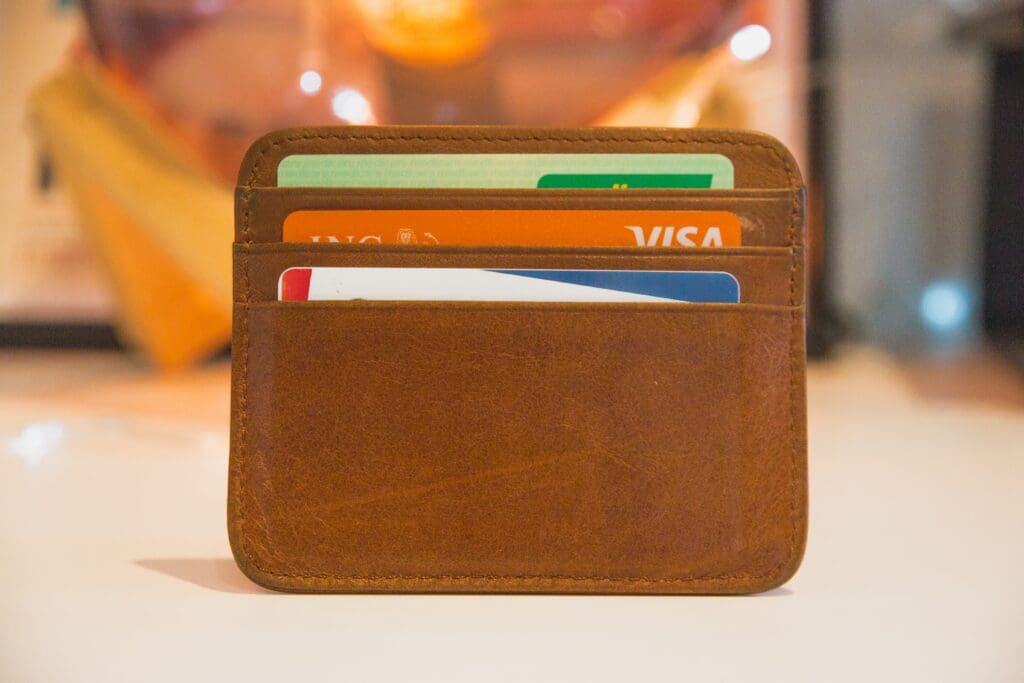Choosing the right credit card for your financial situation and stage in life is an important decision. However, there has never been more credit card options available than right now. Armed with the right knowledge and understanding of the different types of cards, you’ll be well placed to make the right choice.
In this article
Types of Credit Cards
Credit cards vary widely, each with its own set of unique advantages and features. Before you apply for one, it’s essential to get a grasp on all the crucial elements. Check out our guide on what you should know before getting a credit card to help you make an informed decision. Now, let’s dive into some of the most popular types of credit cards.
Rewards Cards
Rewards cards are a favorite among many because they offer incentives for the money you spend. For instance, the Chase Freedom Unlimited card provides cash back on all purchases. Essentially, you earn a percentage back in rewards for every dollar you spend, almost like getting a consistent discount on every purchases!
Balance Transfer Cards
If you’re grappling with credit card debt, a balance transfer card could be a viable option and will help you reduce your debt faster. These cards allow you to transfer your existing credit card balance to a new card with a lower interest rate. The Citi Simplicity Card is renowned for its extended introductory period of 21 months with 0% interest rate on balance transfers.
Secured Cards
Secured cards are an excellent choice for those just starting out building or rebuilding their credit history. With a secured card, you make a deposit that serves as your credit limit. The Discover it Secured card is a prime example, offering cash back rewards as an added perk.
Key Factors to Consider When Choosing a Credit Card
Armed with knowledge about the different types of credit cards, here’s what you should consider when choosing one.
Interest Rates
Interest rates, or Annual Percentage Rate (APR), represent the cost you incur for borrowing money. If you pay your credit card bill in full each month, you wont pay interest and interest rates won’t affect you. However, if you carry a balance at the end of the month, you’ll be charged interest on that amount. Therefore, a card with a low APR can be beneficial.
Fees
Credit cards often come with various fees. Some, like late payment fees, can be avoided, while others, such as annual fees, are inevitable. It’s essential to understand all the fees associated with a card before you apply. For example, the American Express Platinum card comes with a hefty annual fee, but it offers extensive travel benefits that can outweigh the cost for frequent travelers.
Rewards and Benefits
Rewards and benefits are among the most attractive features of credit cards. They provide an opportunity to earn value from your regular spending.
Cash back cards return a percentage of your spending back to you. A lot of cards offer 1% cash back on all purchases, meaning for every $100 you spend, you’ll get $1 back. The American Express Blue Cash Preferred Card offers 6% cash back rates in certain categories like groceries, dining, or gas. If your spending aligns with these categories, you could earn significant rewards over time.
Points or miles cards are perfect for frequent travelers. These cards allow you to earn points or miles for every dollar you spend, which you can then redeem for travel-related expenses like flights or hotel stays. Some cards offer bonus points or miles for purchases made with specific airlines or hotel chains, making them a good fit if you have a favorite airline or hotel chain.
In addition to rewards, many credit cards offer a bunch of additional benefits. These can include insurance coverage such as travel insurance, car rental insurance, or purchase protection, which can cover you in case of trip cancellations, car accidents, or if an item you bought is stolen or damaged.
Some cards also offer free credit score access, allowing you to monitor your credit score and understand the factors affecting it. This can be a valuable tool if you’re just starting out with a credit card and need to manage and improve your credit health.
Other benefits can include concierge services, priority boarding on flights, access to airport lounges, or special discounts with partner companies. These perks can add significant value to your card, especially if you frequently travel or make large purchases.
Credit Limit
The credit limit is the maximum amount you can charge on your card. It’s determined by the credit card company based on factors like your income and credit history. A higher credit limit can be beneficial as it allows for larger purchases and can improve your credit score by keeping your credit utilization rate low.
User Experience and Security
User experience encompasses everything from customer service to online and mobile account management. For instance, some credit card companies, like Capital One, offer intuitive mobile apps that make it easy to track spending, pay bills, and receive instant notifications. Choosing a card from a company that prioritizes user-friendly experiences can make managing your credit card much more straightforward.
Consider the security features of the card. Most cards offer fraud protection, ensuring you’re not held responsible for unauthorized charges. Some cards also provide additional security features, like alerts for suspicious activity.
Understanding all these factors is crucial when choosing a credit card that’s right for you. If you’re new to credit cards or thinking about applying for one, it’s essential to know the basics. Here’s what else to know before getting a credit card to make an informed decision.
Understanding Your Credit Score
Your credit score is a numerical representation of your creditworthiness, and it’s a key factor that lenders consider when you apply for a credit card. The most common type of credit score is the FICO score, which ranges from 300 to 850. The higher your score, the more likely you are to be approved for credit with the best interest rate and a high credit limit. You can check your credit score for free once a year from each of the three major credit bureaus through AnnualCreditReport.com.
If your credit score isn’t where you want it to be, don’t worry. There are steps you can take to improve it. Making your payments on time, keeping your credit card balances low, and not applying for new credit too often can all help to boost your score.
Comparing Credit Cards

When it comes to comparing credit cards, it’s not a one-size-fits-all situation. Different cards cater to different needs, and the best card for you depends on your individual circumstances. Look beyond just one or two features and consider the entire package.
The interest rate is a significant factor, especially if you plan to carry a balance from month to month. Cards with lower interest rates will cost you less in the long run. However, if you plan to pay off your balance in full each month, the interest rate may be less of a concern.
Fees are another consideration. Some cards charge annual fees, late payment fees, foreign transaction fees, and more. While some of these fees can be avoided with careful management, others, like annual fees, are unavoidable. However, cards with annual fees often offer additional benefits or rewards that can outweigh the cost of the fee.
Rewards programs can be a big draw for many people. If you spend a lot in certain categories, like groceries or gas, a card that offers bonus rewards in those categories could be a good fit. On the other hand, if your spending is more spread out, a card that offers a flat rate of rewards on all purchases might be a better choice.
If you’re a recent college graduate who’s just starting your first job and don’t have much credit history, you’re looking for a card that’s easy to get approved and doesn’t have an annual fee. A simple, no-frills card like the Capital One Platinum Credit Card would be a good fit.
On the other hand, if you’re a seasoned business traveler who spends a lot on flights and hotels, a card that offers generous travel rewards like Chase Sapphire Reserve would be a good choice. If you don’t mind paying an annual fee if it means you can earn more points and enjoy perks like airport lounge access.
Applying for a Credit Card
Once you’ve chosen a credit card, the next step is to apply for a credit card (and get approved). You can usually do this online, over the phone, or in person at a bank or credit union. You’ll need to provide some personal information, like your name, address, Social Security number, and income. The credit card company will then check your credit and make a decision on whether to approve your application. In most cases you will get answer immediately or on-the-spot.
If your application is approved, you’ll be given a credit limit and an interest rate. Be sure to read the terms and conditions carefully before you sign-up and start using your new card.
Choosing the right credit card can leave you in a good or not so good financial situation. By understanding the different types of credit cards, considering key factors, comparing cards, and knowing how to apply, you can find a card that’s right for you and helps you achieve your financial goals. Remember, a credit card is a tool for preserving wealth and building credit, and like any tool, the key is to use it wisely.



